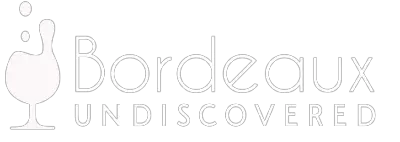 Paul Smith, our Financial Director, has been on a mission in Bordeaux to discover new wines, chateaux and wine makers. This is the first in a series of blogs about his trip and his discoveries.
Paul Smith, our Financial Director, has been on a mission in Bordeaux to discover new wines, chateaux and wine makers. This is the first in a series of blogs about his trip and his discoveries.
Bordeaux, for me, holds many an untapped gem and when I was given the opportunity to join a trade delegation heading out ‘into the field’ under the auspices of the CIVB (Bordeaux Wine Bureau) I leapt at the chance.
My role normally keeps me at my desk dealing with – amongst other things – buying, selling and shipping Grand Cru Classé, so the CIVB’s kind offer enabled me to touch base with the bedrock of Bordeaux: small producers making fantastic wines that give good value for money.
Our group was made up of hoteliers and restauranteurs as well as independent wine merchants and their customers. Listening to the conversations within the group the prevailing message that I came away with was something that was music to my ears.
Given the fact that most of the Grand Cru Classé have moved well beyond most Bordeaux wine enthusiasts reach, attention is shifting to discovering quality wines from lesser known wine makers and over looked appellations. This is exactly what our company Bordeaux-Undiscovered is all about.
The talk centred on tracking down small chateau that lie in the shadow of their ‘great’ neighbours; whose terroir is just as good, whose wine makers are talented individuals and whose owners have invested in modern wine making technology to up their game.
You’ll often find that these wine makers work in the more famous chateaux; or that their grapes – and even wines – once upon a time went into those of the more prestigious chateaux.
Occasionally the wine maker turns out to be a distant relative of a great wine making dynasty with all the benefit of their experience but their chateau is located in an ‘unfashionable’ area. Or that the wine maker owns a once famous but now run down estate with stacks of potential that they are working hard on to unleash.
And sometimes you’ll find a wine made by a complete unknown who has an incredible gift and no means of publicising their chateau as no one has ever heard of it. In short, there are some wonderful wines just waiting to be found and you have to get out there, do the leg work, and bring them back home.
The CIVB arranges tours and tastings to promote all levels of Bordeaux wines and our Guide was none other than Alexander Hall who runs Vineyard Intelligence – which advises on the acquisition of vineyards in France. His knowledge is formidable and he is full of invaluable insights into the Bordelaise wine industry.
Several chateaux had expressed an interest in meeting with us once they had been told a trade delegation was coming to their area and the first day revolved around White Wine.
The one chateau that I must tell you about is Chateau Lauduc.
This is a small property that is one of the nearest producers to Bordeaux city centre, being only 6 miles distant in the village of Tresses.
Tresses has nothing to do with flowing locks of hair – it takes its name from the old French “Tres Leu Cas”, meaning ‘3 Leagues From Bordeaux.’ It’s owned by the Grandeau family and I tasted their white wine with Helene from the chateau.
Lauduc was founded in 1930 and the family built up their modest vineyard during the sixties to the 128 acres it is today. The vines are planted on limestone, clay and gravel south facing slopes.
They make several award winning wines in white, red (including a Bordeaux Superieur), clairet and rosé. The wine maker is Francois Le Tonturier and the consulting oenologist is Emmanuel Villega (who also oversees wine making at Chateau Cheval Blanc).
The property is run by Hervé Grandeau and his brother Regis, 3rd generation wine makers. Hervé and Régis share the workload; Régis manages the vineyard and wine making, while Hervé puts the finishing touches to the blending and markets the wines.
They have a small negotiant business selling Bordeaux wines and Hervé is working hard to promote them – he became president of Quali-Bordeaux in 2008 (the independent organisation for quality control) and joined the CIVB in 2010 to work on the Bordeaux Tomorrow Plan that helps producers. The brothers also breed cattle and Breton cart horses on the estate, and Régis trains the horses to work in the vineyard.
Chateau Lauduc has undoubtedly benefitted from Hervé’s dynamic involvement in quality control, attention to wine making practices and activism, not to mention Régis’ care of the environment and ecology in the vineyard. Needless to say, I enjoyed their white wine and highly recommend it. It’s a brilliant example of a good quality wine hidden by the shadow of the big Bordeaux brands and it deserves it’s time in the spotlight.


